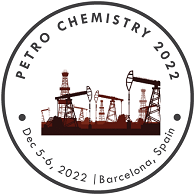Catalysis Concepts
Catalysis is the process of increasing the rate of a chemical reaction by adding a substance known as a catalyst, which is not consumed in the catalyzed reaction and can continue to act repeatedly. Because of this, only very small amounts of catalyst are required to alter the reaction rate in principle. In chemistry, homogeneous catalysis will be catalysis in a solution by a solvent catalyst. Entirely, homogeneous catalysis alludes to catalytic reactions where the catalyst is in same stage from the reactants. Homogeneous catalysis applies to reactions in the gas stage and even in solids. Control over the local chemical environment condition of a particle can be accomplished by encapsulation in supramolecular host systems. In supramolecular catalysis, this control is utilized to gain preferences over established homogeneous catalysis in bulk arrangement. Two of the fundamental points concern impacting reactions as far as substrate and product selectivity. Because of size and additionally shape recognition, substrate selective transformation can be figured it out.
- Catalytic engineering
- Catalysts synthesis and characterization
- Catalytic and multiphase reactors
- Nano-structured materials, catalysts
- New catalytic processes
Related Conference of Catalysis Concepts
Catalysis Concepts Conference Speakers
Recommended Sessions
- Catalysis Concepts
- Challenges and Safety in Petrochemical Industry
- Chemical Applications in Producing Oil and Gas
- Chemical Reaction Engineering and its Applications
- Coal and Natural Gas
- Drilling & Well Completions Challenges
- Energy Economics
- Industry Issues
- Modeling and Simulation
- Petroleum Exploration & Field Management
- Piping and vessel engineering & Transport Phenomena
- Processing Technologies
- Production Technology and Separation Techniques
- Renewable Energy and Feedstock
- Reservoir Engineering

